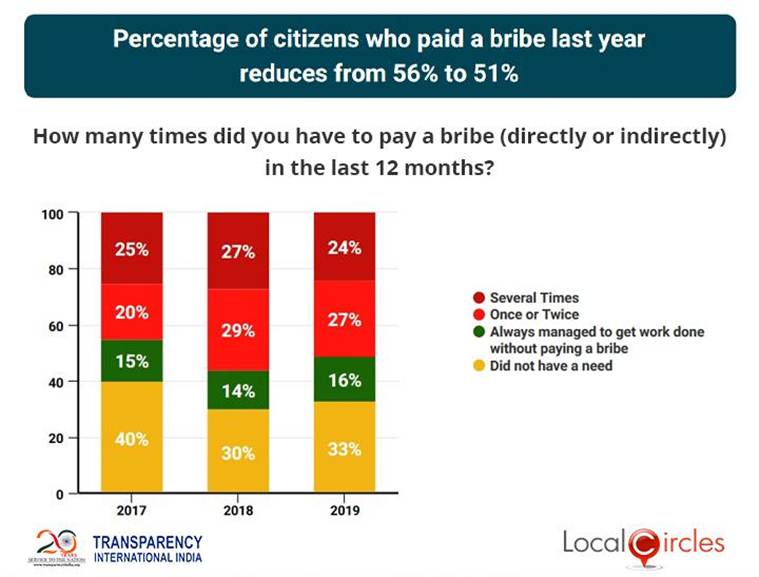Corruption across political parties in India
The corrupt practices
Corruption takes many forms across different political parties in India. When ambitious politicians seek to win elections, they require large sums of money which often comes from corporate donors through opaque policies and laws that benefit these businesses. Policy-level corruption has allowed the financial system to be restructured in ways that advantage large private financial institutions over public sector banks. Controversial legislations like the Financial Resolution and Deposit Insurance (FRDI) Bill are examples of such anti-people financial policies that ultimately serve corporate interests at the cost of common citizens.
Mishandling government funds
Politicians also indulge in personal enrichment by misusing public funds allocated for welfare schemes. Numerous instances of fund misappropriation have been reported across parties and states but little action has been taken to hold the culprits accountable. The scale of corruption expands tremendously as you move down the administrative hierarchy, with local level functionaries siphoning off resources meant for social programs.

Controversial scams under different governments
The 2G spectrum scam
During the UPA era, the unlawful allocation of second generation telecom licenses and spectrum to ineligible companies at throwaway prices caused a presumptive loss of ₹1.76 lakh crore to the exchequer. Dubbed the 2G licensing scam, it epitomized the undue favors provided by the then Telecom Minister to private businesses in return for kickbacks.
The Vyapam scam
Under the BJP rule in Madhya Pradesh, the formidable Vyapam admission and recruitment scam came to light in 2013. It involved fixing the entry of ineligible candidates into medical and other professional courses through manipulation of competitive exams, with bribes paid to politicians, officers and middlemen. Over 40 suspicious deaths related to the case investigation only added to the magnitude of corruption involved.
Questions over major defense deals
Controversies surrounding Rafale
The mega Rafale fighter jet deal signed between India and France in 2016 has seen allegations of cronyism and cost inflation. The opposition Congress alleges that the NDA government overruled the Indian Air Force’s choice of competitors and gave the contract to Anil Ambani’s Reliance Defence without any competitive bidding, leading to an enormous price escalation. While the BJP denies any wrongdoing, public distrust over non-transparency in the high-value defense contract remains.
Other murky defense contracts
Several other military procurements under BJP governments too have courted controversy. The AgustaWestland VVIP helicopter case, in which the names of prominent politicians surfaced, is a glaring example of alleged bribery and corruption in securing overseas defense deals. Lack of open bids and cost overruns continue raising doubts over backroom dealings and favoritism extending to private players in strategic purchases.
Corruption at regional levels
Uttar Pradesh’s NHM scam
In Chief Minister Yogi Adityanath’s home state, the embezzlement of funds under the National Health Mission surfaced in 2019. Over ₹1000 crore siphoned off from the health budget through fake bills, inflated purchases and other financial irregularities brought disrepute to the UP government. The case highlighted deep nexuses between officials, politicians and businesses involved in large-scale financial misappropriation.
Maharashtra irrigation scam
Under the earlier Congress-NCP rule in Maharashtra, inflated costs, substandard work and diversion of funds meant for irrigation projects resulted in the massive multi-crore irrigation scam that denied farmers water security. Allegations point to the former irrigation minister and senior bureaucrats enriching contractors at the expense of public welfare. Political will to properly investigate such scams remains weak across parties.
Similar corrupt mindsets across parties
While individual scams have different scales and complexities, the core motives and methods of corruption exhibit alarming parallels across political outfits controlling India’s diverse states and regions. Personal aggrandizement, policy distortion for favors, siphoning of public money - these corrupt practices thrive under the veil of any party in power. Strong and effective anti-graft mechanisms are urgently needed to check the deep rot that afflicts our political system and governance at large.
The way forward
Considering the scope and magnitude of corruption across political divides, some important reforms are required to enhance transparency and accountability in governance.
Greater oversight of deals
All major contracts, especially in sensitive areas like defense, should be opened for open competitive bidding to eliminate favoritism and unjust negotiation of prices behind closed doors. Stronger auditing of awarded deals can prevent cost inflation and leakages.
Stricter anti-corruption laws
Harsher and swifter punishment under legislations like the Prevention of Corruption Act and recovery of ill-gotten assets can create a real deterrence against political corruption. Fast-tracking of cases and protecting whistleblowers are crucial to facilitate corruption-free governance.
Electoral reforms
State funding of elections and limits on donations can curb under-the-table corporate influence over policymaking that stems from payoffs for political funding. Introduction of additional transparency measures in political party finances will improve governance standards in the long run.
Promises of development, jobs and welfare schemes all sound appealing to voters but the sad reality is that misgovernance and corruption continue bleeding public coffers of crucial resources in India despite regime changes. Holistic anti-graft reforms hold the key to curbing this deep-rooted malaise affecting all administrators and pave the way for truly public service-oriented leadership.
